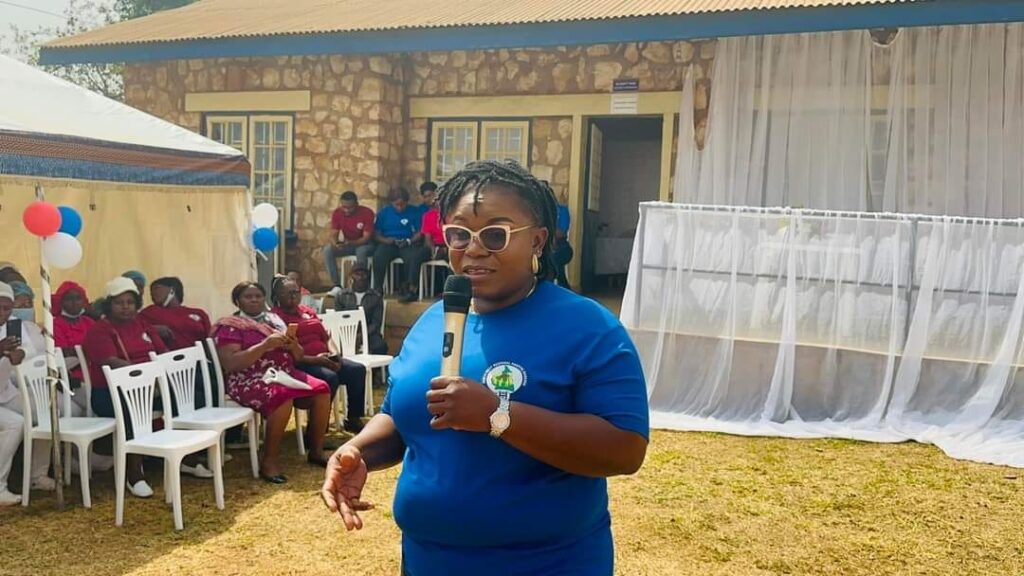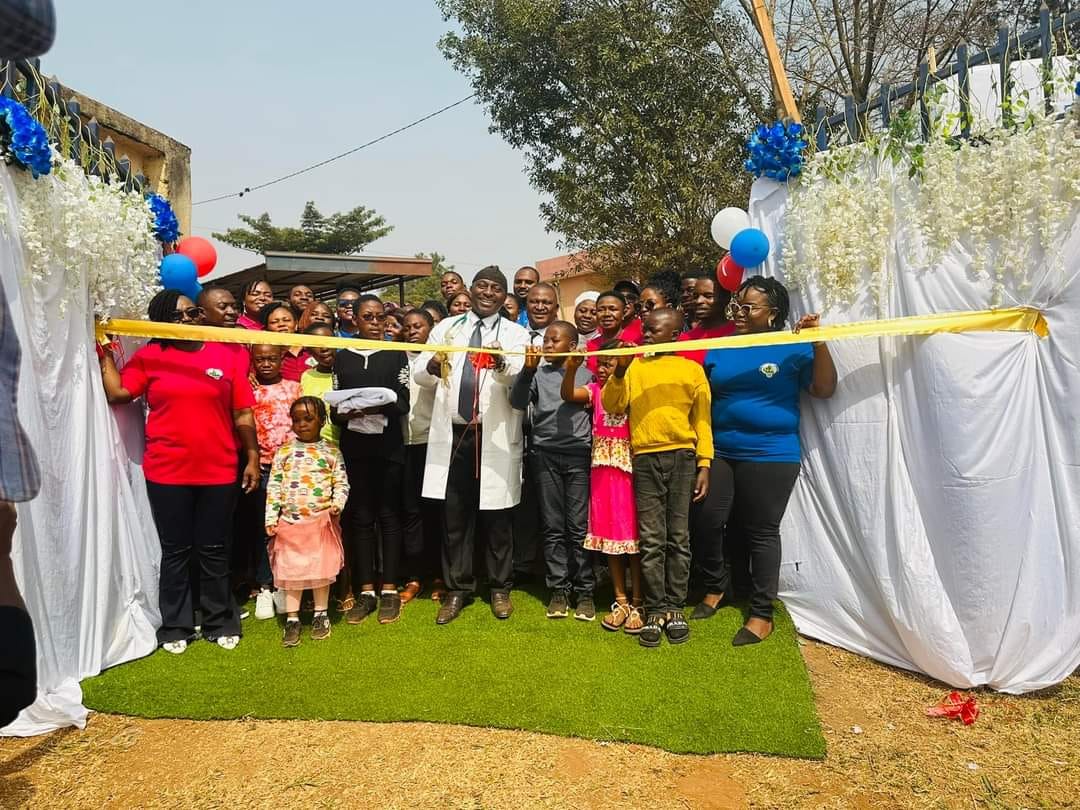Leocadia Bongben & Adrienne Engono Moussang
“Our parents failed to educate us about menstruation and other sexual and reproductive health issues, such as how to use a pad, when we were growing up. For most households, discussing sexual education is taboo, and parents are too shy to do so. Imagine finding out that you have soiled your uniform while attending school. You have no idea why you are seeing blood. It’s a shame that friends make fun of you and make you the talk of the town,” social worker Amabel Kimeng says.
Kinemngs experience depicts a typical Cameroonian home, where talking about issues of teenage sexual and reproductive health and sexual education is a gray area. Even now, some parents still find it difficult to have a conversation regarding sexual education and reproductive health.
Consequently, adolescent girls, for example, get the wrong information from peers and other sources and run into trouble out of ignorance.
Public health neglects the sexual and reproductive health of adolescents, according to Dr. Nsame Denise, Director of the Bamenda Regional Hospital. Most regions lack safe spaces for teenagers aged 10 to 19, and those that do exist are insufficient to meet the needs of this demographic.
Statistics indicate that of the 29 million people living in Cameroon, adolescents aged 10 to 19 make up more than half of the population. Statistics from the 2018 Cameroon Demographic and Health Survey (DHS) indicate that the proportion of adolescents rose from 22.2 percent in 1990 to 32.7 percent in 2015, and about 54.3 percent of adolescents are exposed to physical, sexual, or emotional violence, including rape. On average, teenage girls have experienced their first sexual encounter at the age of 17.
Nsame says adolescents have lots of problems being in the transition age, ranging from sexual and reproductive health issues, teenage pregnancies, and unsafe abortions to psychological and physical challenges, mental health, and drug abuse.
The Cameroonian Society of Gynecologists and Obstetricians (SOGOC) indicates that unsafe abortions account for 33 percent of maternal deaths. SOGOC commits to enhancing women and girls’ access to safe abortion care in Africa, as reaffirmed in the Livingstone Safe Abortion Care Charter of 2023. They “advocate for the right to access age-appropriate information and sexual and reproductive health services on behalf of and alongside vulnerable population groups at risk of maternal mortality and morbidity, which includes young people and adolescents.”
The United Nations Human Rights Committee on Economic, Social, and Cultural Rights (ICESCR) advocates for access to reproductive health care, family planning, and abortion (Articles 12, 10, and 15(1)(b). ICESCR recommends that member states ensure the availability of trained medical professionals, provide access to health facilities and information concerning sexual and reproductive health, respect the culture and sensitivities of specific groups about sexual and reproductive health, and provide good-quality facilities, goods, and information related to sexual and reproductive health.
In the same light, the Maputo Protocol guarantees extensive rights to African women and girls. It highlights progressive provisions on harmful traditional practices, such as child marriage and female genital mutilation (FGM), as well as reproductive health and rights, among others. Cameroon is a signatory to these international conventions and protocols; however, implementing the protocol is still an issue.
A note from the health minister, Manaouda Malachie, announces the creation of approximately thirty health and wellness centers nationwide. Adolescent clinics and wellness centers, according to medical professionals, are established to respond to the neglect of sexual and reproductive health as a public health issue in Cameroon. Two existing adolescent clinics are in Yaounde and Bamenda.

BAMENDA ADOLESCENT CLINIC
One of the new facilities established in the Anglophone regions affected by the war is the Bamenda Adolescent Clinic. In the Northwest region, where rape and sexual assault are considered weapons of ongoing conflict, the significance of the facility cannot be overstated. The Center plans to step up in terms of offering comprehensive sex education as well as accompanying medical care, including treatment for gynecological issues such as menstrual cramps, amongst others.
The Adolescent and Wellness Center at the Bamenda Regional Hospital in the Northwest region of Cameroon is the first structure to be found after you enter the hospital grounds through the main entrance. The center opened for business in February 2024 and is open Monday through Friday. The third Saturday of each month is set aside for sessions for parents. Social workers visit the wards to spread the word and sensitize visitors and patients during consultations.
Eleven-year-old Amanda Marlese Ejanaso visited the adolescent clinic and said this after spending some time at the center. “I discovered that talking to the wrong people is crucial, and I no longer need to be afraid to share my anxieties with others. Menstruation is natural and normal, and I am not supposed to hide my first menstruation as this can lead to something unspeakable.”
Dr. Njandock Fomenky, coordinator of the adolescent clinic, doubles as a pediatrician and certified leadership and parenting coach. In one of the first sessions, known as the ‘Valentine Edition”, Fomenky and the staff ensured the teenagers understood the meaning of friendship and love, how to set boundaries, resist peer pressure, respect, and obey their parents, who love them unconditionally.
Dr. Fomenky says that the center connects the family and the school. “During the years of adolescence, we support them and foster harmony between the home, school, and personal lives.”

YAOUNDÉ ADOLESCENT CLINIC
The Yaoundé Adolescent Clinic at the Gyneco-Obstric and Pediatric Hospital has been operating for many years. Located within the hospital and not readily visible, the Gyneco Adolescent Clinic was established in 2015 and is open on Wednesdays from 1:00 pm to 5:00 pm.
All consultations are free, and the facility caters to the reproductive requirements of teenagers as well as individuals who are sexually active and need access to contraceptive options, maternity care, and post-abortion care, attests a teenager, MarieLouis Kenjo.
About 1500–2000 teenagers visit the adolescent clinic at Gyneco each year. Most adolescents come looking for health information; some of them are pregnant, and all consultations are provided at no cost. The center makes itself more accessible to the public by holding parent and adolescent health discussions, open-door days, and media coverage, according to Prof. Robinson Mbu, coordinator of the clinic.
“Youths and adolescents are the future,” claims Mbu, “and for them to enjoy healthy sexuality as adults, they must begin at the adolescent age with preventive measures to prepare them for adulthood.”.
“Sexually active adolescents should not be oppressed,” he warns parents. This clinic ensures that adolescent sexuality is responsible and helps them with family planning techniques. In addition to using more reliable artificial measures, he says. “We prone dual protection—which means every adolescent who is not married should not indulge in sexual activity without a condom,” Mbu states.
PSYCHOLOGICAL SUPPORT
In these facilities, counseling and psychological support are essential for giving teenagers the right orientation. Since 2015, Siewe Berthe Epse Kamga has worked as a psychologist at the Yaounde Gyneco-Obstric and Pediatric Hospital. “We receive adolescents who struggle with speech at home and whose parents are frequently out taking care of their enterprises. Teenager cannot disclose that they are pregnant; instead, they should listen to their buddies in this situation. “It’s critical to elucidate the situation to family members, assess the circumstances, and accompany them as they see gynecologists or other specialists,” says Siewe.
BARRIERS TO OPTIMAL SERVICE
Dr. Fomenky claims that one of the obstacles facing the Bamenda Center is that it is still relatively young and needs to get public recognition. “We are here for the long haul, but we understand hesitancy for now.”
Nursing student Karen Bih claims she is unaware of any clinic for adolescents in Yaoundé, as her school is located a short distance from the hospital. More adolescent clinics should be opened, especially in rural areas with a significant deficit. Experts advise placing adolescent clinics in easily accessible areas and boosting publicity to draw attention to them.
Restrictive laws, lack of implementation
Cameroon does not have a law on sexual and reproductive health; hence, the International Convention on Economic, Social, and Cultural Rights takes precedence. Despite efforts to improve healthcare in Cameroon, there are still a small number of health clinics offering sexual and reproductive health services and family planning services, and the majority are in major cities.
Act. No. 90/035 of 1990 prohibiting birth control propaganda limits Cameroonian women’s access to information that would enable them to choose a contraceptive method.
Cameroon’s abortion law, No. 2016/007, Articles 337–339 of the Penal Code, which permits abortion only for therapeutic reasons or for pregnancy resulting from rape, also has serious consequences for women’s reproductive health. Clandestine abortion is widespread in Cameroon, the source of 40% of obstetric and gynecological emergency admissions. The Cameroonian government should adopt a less restrictive law on abortion.
While the idea of creating 30 additional adolescent clinics is laudable, there is a need for reforms in the abortion provision, policy change, and political will in the implementation of international conventions.

